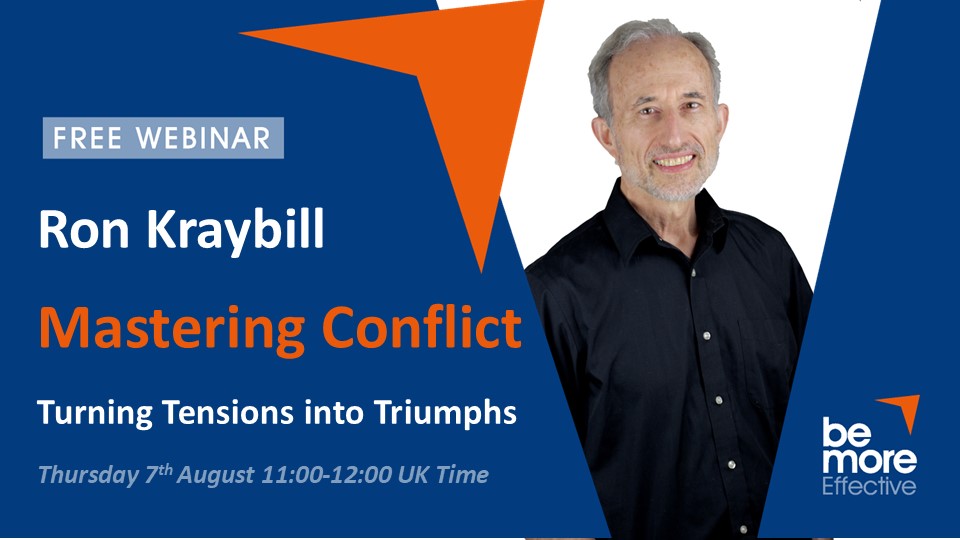The Nature of Persuasion - Part Five

This is the fifth in our series of eight articles on the nature of persuasion. We’re using the acronym PERSUADE to guide us.
The first four articles covered Planning and Preparation (P), Expand Your Understanding (E), Rationalise (R), and Summarise (S). These were largely about laying the groundwork for successful persuasion, and then collecting and organising what you learned.
These steps are essential as a precursor to anything you do afterwards. To look at it another way, if you fail to do these things, then you’ll be acting on incomplete information and the chances of success will be significantly diminished.
Having said that, there’s still more to be done.
It’s not enough to understand the problem. You also have to understand the person.
Understand the person
In an earlier article, we reminded ourselves that in order to persuade anyone, we had to get them to agree with us on the problem and the solution.
All that sounds great on paper. The challenge comes with the people concerned.
You’re one-half of that problem.
Contrary to popular managerial opinion, the fault doesn’t lie entirely with the other person. You have an agenda, but so does the other person.
If you fail to take that into account, then the only way you’ll persuade anyone is through force, and that only where it can be applied.
Personality clashes
Personality clashes are not something that only plagued managers in years gone by. They can happen as easily today as at any other time.
We’re all different.
It’s easier to get on with some people than others. Just ask Michael Parkinson. One interview in particular ranks as being the worst of the worst. Google it if you’re interested.
What causes personalities to clash?
Egos
Usually it has something to do with the egos of those involved.
Most people are insecure in this world and with themselves to one degree or another.
Many let it bother them. They become fixated on it, and that’s because they focus on themselves and their needs rather than others.
They seem to believe that any concession or compromise on their part is synonymous with defeat; and as they’re determined to win, clashes are inevitable.
The majority of us don’t like conflicts, we cave in, even on important things. This is why bullies are able to carry on for so long. No one is willing to challenge them.
If you’re determined to have your own way all the time, you can expect conflicts to arise.
Humility
You can defuse this clash of personalities by adopting a little humility.
How do you do that?
By remembering what the goal is.
When you seek first to understand, whether it’s the problem or the person, you’re admitting that you have room to learn.
That’s really important.
The person who isn’t willing to learn believes that he or she already knows everything; and the truth is that no one does.
Have you ever met someone whose favourite response was, “I know that”? It’s quite off-putting. It doesn’t take long for you to assume that the other person knows what you have to say, no matter what it is. And rather than embarrass yourself by saying it, you say nothing.
In the end, the know-it-all misses the most important information.
One behaviour which accompanies pride, which is the opposite of humility, is arrogance. Although not all perceived arrogance comes from an inflated ego, probably more of it does than doesn’t.
No one wants to be around someone who is arrogant.
Leaders who act this way cease to lead. That’s because their followers look for someone else to follow.
Managers who act like this are avoided. Staff will take the long way back to their desks just to dodge and encounter.
Salespeople who behave like this don’t sell anything. They don’t get follow-up meetings, and no one returns their calls.
If you strive to be humble - and that’s not a contradiction in terms - people will want to be around you.
Why?
Because by your behaviour you’ll demonstrate that you want to listen to what they have to say. That makes the other person more important than you.
This leads nicely into the next thing: -
What’s in it for them?
You’ve seen this question before, and it’s really important.
Ask yourself this: Why is the viewpoint of the other person so important to him or her?
Ego may play a large part, but perhaps not for the reasons that you think.
If you fail to respect the other person or the views of that person, if your attitude patronises or belittles, then you can expect resistance.
If you start with others and learn to recognise why their views are important to them, then you’ll better understand how to appeal to them.
Psychologists will tell you that people buy with their hearts and justify with their heads.
It’s something that others do.
It’s something that you do.
None of us is the dispassionate shopper that we’d like to think that we are.
Take the whole organic movement, for example. The passion behind it began with how we felt about the environment. In the 1960s, there were “flower children”. People painted their VW vans in psychedelic and flowery patterns.
Some people hugged trees. As the lyrics of one song made clear, some even talked to them.
Feelings are emotions, and they come from the heart.
After the passion comes the “reasons” - all the good things that we think we’re doing for the environment and for those who live in it and will in the years to come; but the heart precedes the head.
In heated arguments, the heart is the driving force.
Just imagine how much calmer everything would be if our discussions were confined to the facts.
Think, too, how boring it would be.
You have to find out why people are passionate about the things that they are before you try to persuade them of anything.
No obvious solution
There’s something else that you have to think about.
That obvious solution - the one that the other person just doesn’t get? It’s obvious only to you.
Why?
Because it’s consistent with your emotions. That is, you don’t feel there’s a conflict.
The other person, however, objects because there is internal conflict and for reasons which may be undefined.
You have exactly the same experience when you speak of having a “gut-feeling”.
Flexibility
The solution which is obvious, therefore, is for you to be flexible.
We’ve seen this already.
What matters is the goal.
How you get to it, whether you appear to win or lose, is immaterial.
The goal for you is not to save face. It’s to implement an agreed solution.
The most effective leaders and managers will tell you that they met with the least resistance when those they sought to persuade owned the solution.
Ownership means that it’s mine.
Think of a two-year old.
“Mine!”
When people take ownership of something, then it has meaning for them.
That’s really important.
And for as long as that child thinks that something is his, even if it’s only for a few minutes, he will protect it from you or anyone else who tries to take it away.
If you have the patience to “seed” the minds of others with the right suggestions, they may even come up with “your” solution on their own.
This isn’t some trick that psychologist play, at least not the good ones. Instead it’s a way to get others to think for themselves.
You provide the facts, and then get others to solve their own problems, instead of relying on you to do that for them.
The best salespeople don’t need to browbeat their prospects into buying from them, for example. Instead, they get inside of their emotions. They make them feel comfortable with the solution they’re being offered, and then let them choose the products or services that best meet their needs.
If you say, “It’s a no-brainer to buy from me”, then the other person will naturally be sceptical. If you say, “Here are the strengths and weaknesses of the top five solutions”, then it shows that you’re more interested in what the prospect needs.
If you say pressure people to buy from you, or to adopt your solution - whatever it is - then you stir up their gut-feeling that tells them that they should keep looking for another solution.
If, on the other hand, you say, “I’ll help you find whichever avenue will help you the most. It doesn’t matter who offers it”, and mean it, then the other person will be more likely to accept your recommendation because they’ll know that you’d rather forfeit a sale if it was in their best interest than to shackle them with something that wasn’t a good fit.
Conclusion
We’ve covered a lot in this article, and yet we’ve only scratched the surface.
The key thing you must remember is that we’re all different.
Although we prefer the company of those who are like us, sometimes we have to deal with people who aren’t. These could be colleagues in the workplace, prospects for our business, or customers.
The best outcome from your perspective is likely to be your message, your method, or your product. The same can be said for the other party.
You have to learn to put the interests of others ahead of your own. When you do that, you’ll win the other person to your side.
It’s counterintuitive, but it’s the truth.
Want to read more about persuasion? Read this book
For more information please send a message via the Contact Us Page. Or you can register for an upcoming webinar.


